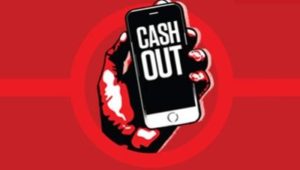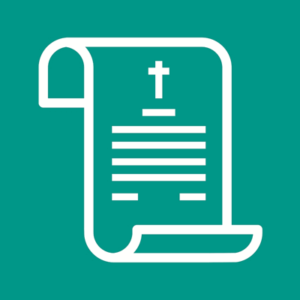 It’s a curious situation, but if you look into just about any type of risk – shares or debt, for example – you will find that there is always the potential to sell that risk on to someone else, if you wish, but does that rule apply to bets?
It’s a curious situation, but if you look into just about any type of risk – shares or debt, for example – you will find that there is always the potential to sell that risk on to someone else, if you wish, but does that rule apply to bets?
If you placed a bet on a football match taking place in a couple of days but you then decided that you didn’t want that bet to be in place anymore, could you sell it on to someone else who was willing to take it over? Or, on the other foot, you have a friend who is wanting to sell a bet they have placed on an event taking place in one week, would you be able to buy it from them?
Indeed what about a winning bet, could someone sell that on? Perhaps they can’t claim the winnings for some reason and so will sell the bet to at least get something back?
When it comes to the world of betting, the rules are quite different for buying and selling risk. Bets that you have placed are entirely yours and only yours. The same is true of a friend who has placed one or more bets – they belong to your friend and only to them. Essentially, when you place a wager, you sign a personal contract with the bookmaker providing the markets on the sports event. Therefore, selling that bet would end up being a breach of the contract rules between yourself and the sportsbook.
Additionally, when you consider that it is not possible to place a bet on someone else’s behalf, this also factors into why you can’t sell your bets.
Having said that here we are looking at bets placed in your name, it is entirely possible for you to sell a betting slip from a betting shop where you placed a bet in cash (or likewise buy a betting slip from someone else). This is also not allowed in the bookmakers terms and if you are found out they will likely cancel the bet, but of course it does go on and is hard to track.
Why is this the case for the betting scene but not for other forms of risk that you can’t sell that risk on?
Why Is It Against the Rules to Sell Your Bet?

As noted, it is completely against the rules of the Gambling Commission to place a bet on someone else’s behalf. In fact, the regulatory body has its very clear definitions on what betting actually is. And unless you’re using money that has been gifted to you, you cannot place a bet with money from someone else.
Betting companies need to know exactly where all the money that they receive is coming from, and this is why the rules around using other people’s money to bet are in place. It is also for this reason that the site’s request you to confirm your identity as well as your home address when you register for an account at an online sportsbook.
It is this same logic that dictates the reasoning why you’re unable to sell a bet, such as you may be able to do with shares, for example. Placing a bet actually involves you taking out a contract with the betting company you have a registered account with. In fact, any licensed and regulated legitimate online bookmaker will list certain details within their terms and conditions about this. Essentially, this small print will dictate that you are entering into a contract with the platform and that you must meet certain criteria for this. One of those conditions is that they know all about you.
If you were to proceed on with selling a bet that you have placed at a sportsbook, then you would not have any associated risk with it. In other words, someone else would be responsible for that risk in your place. And in this respect, the bookmaker that you placed the bet with would have no idea who it is dealing with. It is this that violates the terms and conditions set out by the sportsbook. For example, you could sell a bet to someone who is underage or you could sell a bet to someone who got that money from criminal sources, money laundering, etc.
This is the definitive and primary reason why you aren’t allowed, by law, to sell your bets onto anyone else, regardless of the intentions you have behind doing so.
Cashing Out Is Selling A Bet Back To The Bookie
 What happens when you no longer want to be a part of the risk you have entered into of your own accord? Well, just because you don’t have the option of directly selling that bet onto someone else, doesn’t mean that there are alternative routes to take.
What happens when you no longer want to be a part of the risk you have entered into of your own accord? Well, just because you don’t have the option of directly selling that bet onto someone else, doesn’t mean that there are alternative routes to take.
If you have ever heard of the Cash Out function that many sportsbooks offer to players on live bets, then this works as a sort of option that you can take. Cash Out is not always available but it is for many bets and the prevalence is increasing. Effectively the bookie offers to buy your bet back off you before it completes. Cash Out is usually available in-play and sometimes pre-event too. With most bookies if you place a bet and then try to cash it out soon after you won’t get your full stake back but will get most of it. With some, like Unibet, they will actually honour the stake value if you cash in before an event goes live.
As Betfair defines it, the Cash Out mechanic “allows you to lock in a profit or loss before waiting for the event to finish”. The platform does the maths for you on the value of your bet at that given time, then subtracts a margin and offers you a price. Unless your bet is already winning usually the price given will be less than the stake.
current bets in place and offers you a value in real time, which bases itself on the live market prices. So, to put it simply, this route basically sees the bookmaker buying your bet from you, and you take less of a profit from leaving the wager early.
While this is a means of ‘selling’ your bet back to the sportsbook it should be used cautiously as the sportsbook to take a cut when you cash in a bet. In effect you are paying a double margin, a margin on the original bet and then a further margin to sell it back. That being said, if you do want to “sell” your bet, then this is the legal and best option to go for, because it doesn’t see you breaching the rules of the contract you have taken out with the bookmaker.
Using an Exchange is an Alternative
 Using betting exchanges, such as the one provided by Betfair, serves as a kind of alternative option. When you use a betting exchange you can back markets, like with a conventional bookie, except you are backing markets that are sold by other people not the bookie itself, peer-peer betting (which actually produces way better odds in general, but that is an aside). Crucially you can also lay bets to other people for them to back, in effect buying and selling risk.
Using betting exchanges, such as the one provided by Betfair, serves as a kind of alternative option. When you use a betting exchange you can back markets, like with a conventional bookie, except you are backing markets that are sold by other people not the bookie itself, peer-peer betting (which actually produces way better odds in general, but that is an aside). Crucially you can also lay bets to other people for them to back, in effect buying and selling risk.
If you backed a specific bet and then decided that you didn’t want that risk or exposure you could then go and lay the same bet on an exchange. This may not always give you all your money back but is a means of reducing exposure on existing risk. It is called hedging your bets. Many professionals hedge but they ‘buy’ and ‘sell’ at favourable terms to ensure they make a profit.
As with stock markets those who use exchanges actively are mostly concerned with exposure to risk. In all intents and purposes backing and laying on an exchange is very similar to buying and selling to reduce exposure and maximise profits. Be cautious though, not everyone makes money this way and without a complete understanding of how odds work and how to manage risk you would more likely end up losing – hence why we say ‘professionals’ make money this way.
Sports Share Trading
 A new concept that has cropped up in the past few years involves buying shares things like football teams rather than backing teams at fixed odds. Shares then go up and down based on performance. If you use a brokerage such as SportsBroker it is a peer-peer service, where you buy shares from other people, or sell to other people. The operator then takes a small commission of positive trades.
A new concept that has cropped up in the past few years involves buying shares things like football teams rather than backing teams at fixed odds. Shares then go up and down based on performance. If you use a brokerage such as SportsBroker it is a peer-peer service, where you buy shares from other people, or sell to other people. The operator then takes a small commission of positive trades.
While this is not buying and selling bets it offers a way to buy and sell risk in sports teams, which is a similar concept. Shares can be bought and sold at any time, meaning you do not need to wait for events to complete.
Note, however, that this is a different animal entirely regulated by the FCA not the UKGC. It is classed as trading and while it shares similarities to a betting exchange should only be entered into with a full understanding of how trading and risk work.
Using A Betting Shop

It doesn’t have to be an online sports betting platform that you utilise for your wagers. You could visit a land-based betting shop and place your sports bets in person if you wish. This, naturally, requires you to take the bet out in person, where an employee will check you are old enough to gamble, accept your wager and then print out a bet slip that you can carry around with you. You can, however, bet in cash in a shop, which means there is anonymity to that bet slip.
Once you walk out of a shop with a bet slip purchased in cash there is very little to stop you from meeting with Alan from down the street and selling it on to him for a price that you both agree on. Let’s say you take out a sports bet of £10 on an upcoming football match between Everton and Manchester United and another of £10 on a game between Arsenal and Tottenham. Your bet slip will have a total of £20 in bets on it, and you could then work out a deal with someone to buy that slip from you for £20. They would then be in control of the bets, and you would have effectively sold those bets to them as a result.
Nobody would really know who it was that purchased the bets in the first place. If any of the two football matches result in wins on the slip, then the person that you sold the slip to would simply walk into the shop and claim the winnings for themselves. Let’s be clear this is against the terms you entered into when you placed the bet and if found the bet may be declared void, but naturally it does happen as there is often very little chance of anyone being caught (unless you are trying to sell big bets or bets with very high winnings where you may need to undergo further checks).
The United States Offers a Different Take on Things
 While the United Kingdom has very specific laws in place on buying and selling bets, the United States actually provides a service for people to proceed with selling their bets and/or buy others. This occurs through a company known as PropSwap, which was marketed as a sort of online marketplace for sports bettors to engage in.
While the United Kingdom has very specific laws in place on buying and selling bets, the United States actually provides a service for people to proceed with selling their bets and/or buy others. This occurs through a company known as PropSwap, which was marketed as a sort of online marketplace for sports bettors to engage in.
PropSwap was introduced to the United States in 2015, serving bettors in Nevada. The intent of the company was to allow people to sell their bets prior to them being settled. It operates as a small and unregulated company, founded by two entrepreneurs in Ian Epstein and Luke Pergande. Back in 2015, sports betting wasn’t quite as accepted in the United States due to the PASPA law that wasn’t overturned until 2018 by the Supreme Court.
At the time, it was introduced to the States as an innovative idea for the sports betting sector. People participating in betting in the USA are very much risk averse, and this leads them to want to sell any sort of risk they possess. Rules surrounding sports betting in the United States are also different to the rules in Europe, so there is little fear held that breaches of terms and conditions will occur. Naturally, this service remains active solely in the United States, and isn’t likely to be introduced to the United Kingdom at any time. The rules are too strict when it comes to placing sports bets at UK online gambling sites.
Inheritance of an Account
 While you technically aren’t buying anything through this route, some online bookies do allow you to inherit someone’s account, and anything involved with it. Let’s say that someone places an ante-post bet, also known as a futures bet. Sometimes, this can be done on horse races that are taking place three months or six months down the line, for example. However, ante-post bets can be done on sports including football, tennis, golf and so on. These types of wagers actually end up paying out more if they are successful ones, which is where the benefit rests.
While you technically aren’t buying anything through this route, some online bookies do allow you to inherit someone’s account, and anything involved with it. Let’s say that someone places an ante-post bet, also known as a futures bet. Sometimes, this can be done on horse races that are taking place three months or six months down the line, for example. However, ante-post bets can be done on sports including football, tennis, golf and so on. These types of wagers actually end up paying out more if they are successful ones, which is where the benefit rests.
If the owner of that account passes away before the ante-post bet is settled, then generally speaking, the winnings would be credited to the sportsbook account they possessed, as normal. The sportsbook would normally try to contact the owner of the account first of all, and this may end up putting them in contact with a family member or friend. This would then give them insight into the owner’s death.
Valid documentation would need to be provided by the wife, husband, child or close family member, regarding the passing of the owner. This would allow them to be the beneficiary of the winnings from the ante-post bet. Without such documentation, the winnings are not claimable and would end up going to the bookmaker after a period of time.
However, any money within a betting account is classed as cash, while any ante-post bets remaining in action on a betting account will stay active. The cash and the account can both be considered as part of an estate when someone passes away, regardless of who inherits such. Therefore, if you inherit the sports betting account of someone, you will become the owner of any cash in the balance and any futures bets still in place. While you don’t specifically buy the bets of the former account holder this way, you still gain possession of them as the inheritor.
